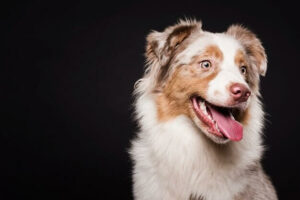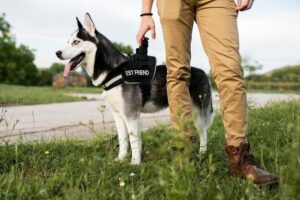Building a solid and positive relationship with your puppy from the very first days is crucial for establishing a harmonious home life. Puppy training not only shapes the behavior of your new companion but also lays the foundation for a long and happy life together.
Here are some effective training techniques that can transform the experience of raising a puppy into a rewarding journey.
Early Training Start
Begin training from the first day at home.
Puppies are learning sponges in the early months of life, absorbing information about their environment and interactions.
Consistency during these initial stages is key.
Set clear rules about where the puppy can and cannot go, and be patient in reinforcing these rules.
Positive Reinforcement
Positive reinforcement is an effective approach to training puppies.
Always reward desired behaviors with praise, affection, or treats.
This creates a positive association between the correct behavior and a pleasant reward, encouraging the puppy to repeat these actions.
Avoid using severe punishments, as they can cause fear and anxiety.
Proper Socialization
Socialization is a crucial part of puppy training.
Expose your puppy to a variety of people, environments, other animals, and situations early on.
This helps build confidence and reduces the likelihood of undesirable behaviors such as shyness or aggression.
Make these experiences positive by rewarding the puppy for friendly interactions.
Basic Command Training
Teach basic commands like “sit,” “stay,” and “come.”
Start with short training sessions, using rewards to encourage the puppy to obey.
Gradually increase the complexity of the commands.
These basic commands not only make daily life easier but also strengthen the bond between you and your puppy.
Establishing a Routine
Puppies thrive on routine.
Establish consistent times for feeding, walks, play, and sleep.
This not only helps prevent accidents in the house but also provides the puppy with a sense of security and predictability, contributing to more stable behavior.
Managing Undesirable Behavior
Anticipate and manage undesirable behaviors to prevent them from becoming habits.
If you notice your puppy chewing something they shouldn’t, distract them with an appropriate toy and praise them when they change their behavior.
Patience is crucial, as puppies are constantly exploring and learning about their environment.
Crate Training
Crate training can be a valuable tool for puppy training.
A crate can serve as a safe refuge for the puppy and facilitate housebreaking, as well as help prevent destructive behaviors when you are not around.
Make sure to turn the crate into a positive space, associated with rewards and pleasant moments.
Final Considerations
Puppy training is a fundamental investment in building a healthy and happy relationship.
Be consistent, use positive reinforcement, and be prepared to dedicate time and patience.
Each puppy is unique, so adapt these techniques to the specific needs of your furry companion.
With proper training, you will be paving the way for a joyful and lasting coexistence in your home.




